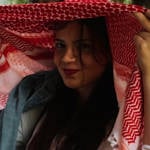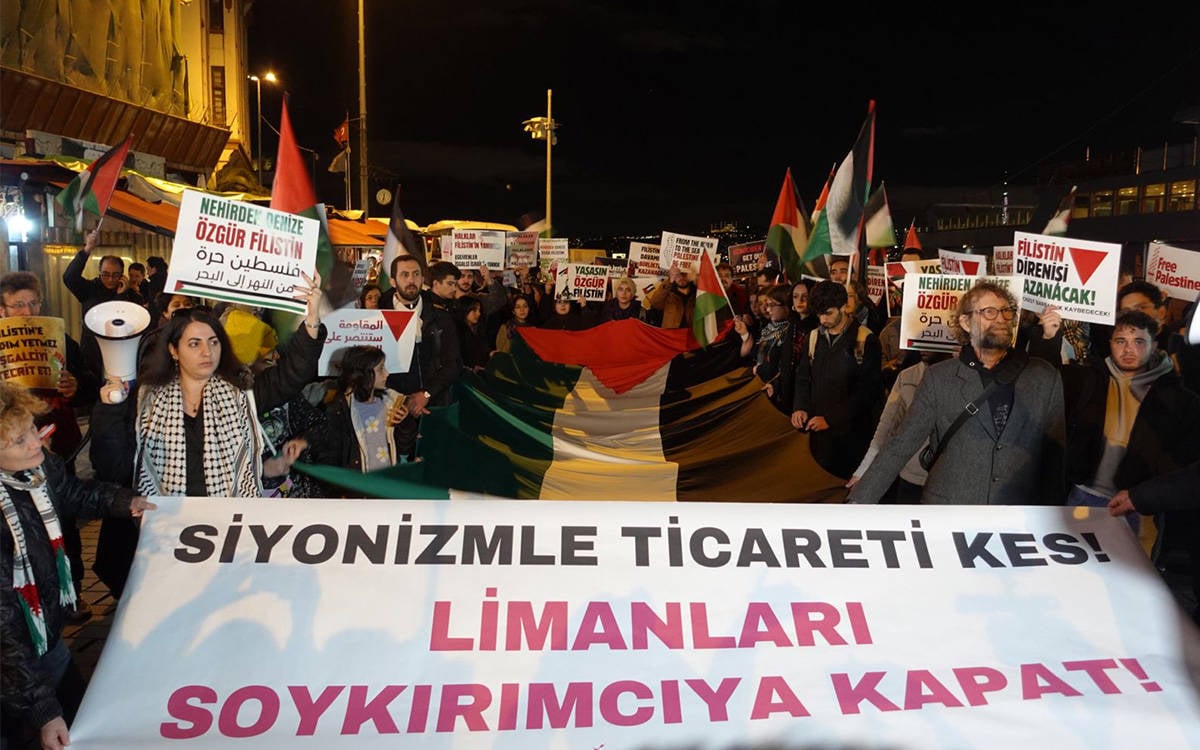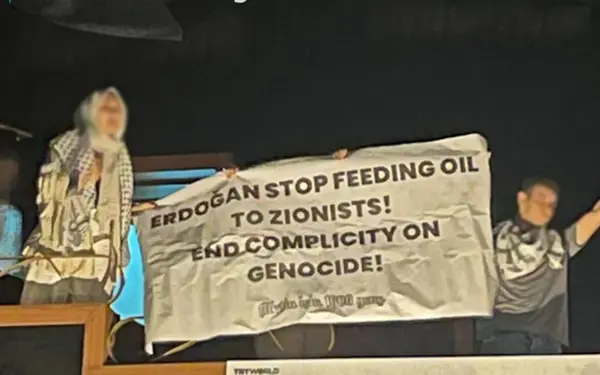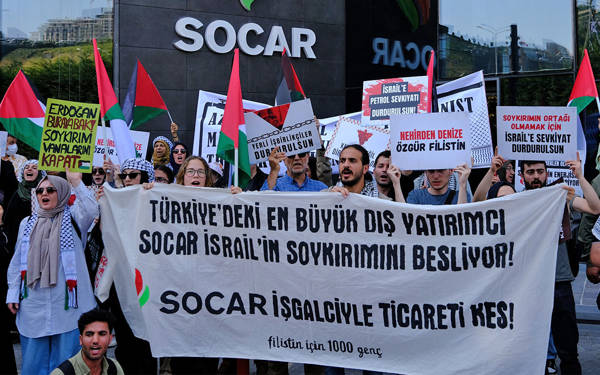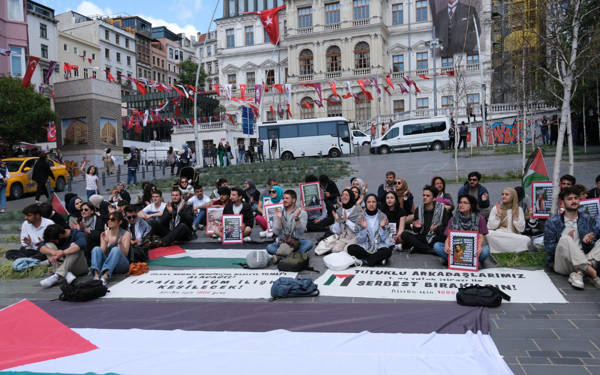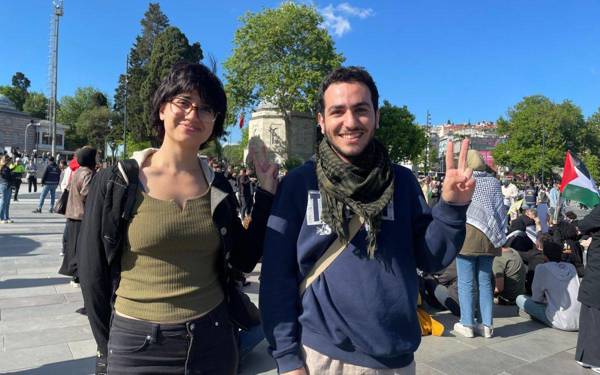1000 Youth for Palestine: hope, resistance, revolt

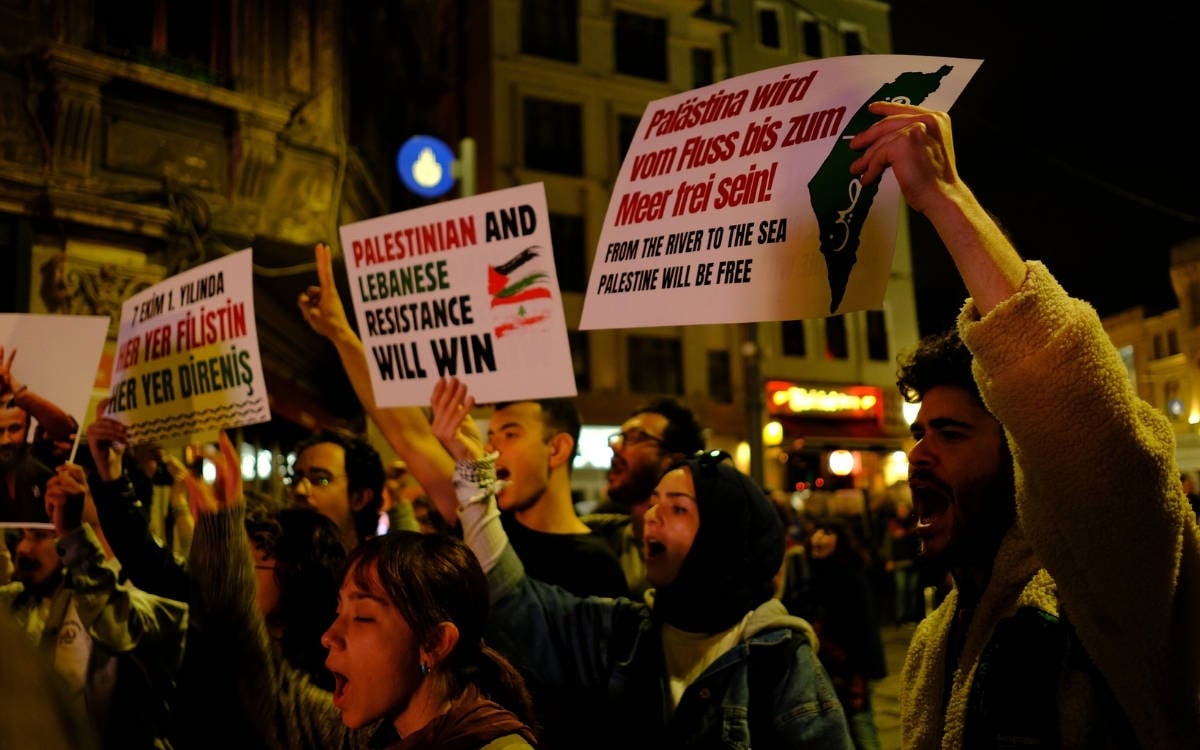
On the anniversary of Oct 7, during the week of resistance, 1000 Youth for Palestine called for demonstrations in İstanbul, Ankara, Bursa, and Eskişehir. In İstanbul, the plan was to march from Şişhane in Taksim to the İstanbul Provincial Trade Directorate. However, the police set up barricades in the tunnel to block the protest, positioning themselves ahead of and around the marchers. Negotiations took place between the protesters and the head of the security branch, but neither side backed down.
During the protest, police attempted to secretly remove and abduct one of the demonstrators, Yüsra Sumeli, who had fallen to the ground. When protesters asked, "Where is our friend?" the police responded, "We don’t know." Riot police then tightened their blockade around the group. There were even disagreements among the police about whether the group should be entirely surrounded.
Thanks to the intervention of a lawyer from the 1000 Youth for Palestine group and the persistence of those present, Yüsra Sumeli was eventually returned to the crowd. However, throughout the protest, police frequently intervened with pepper spray and physical violence.
‘Stop trade’
The demonstration ended about two hours later, with protesters marching from the Tunnel to Şişhane due to the road being blocked by the police. Slogans continued to be chanted until the very end. That same night, nearly all 20 members of 1000 Youth for Palestine who took to the streets in Ankara were arrested with their hands cuffed behind their backs and were subjected to harassment. They were released later that night.
Slogans at the demonstration included "Stop it! Stop trade!" "From İstanbul to Gaza, 1000 salutes to the resistance," "Imperialists, collaborators, Palestine will be your grave."
On the night of Oct 16 and the following morning, 18 members of 1000 Youth for Palestine were detained. They were charged with resisting the police. The group members, arrested nine days after the Oct 7 Taksim protest, were released the next day.
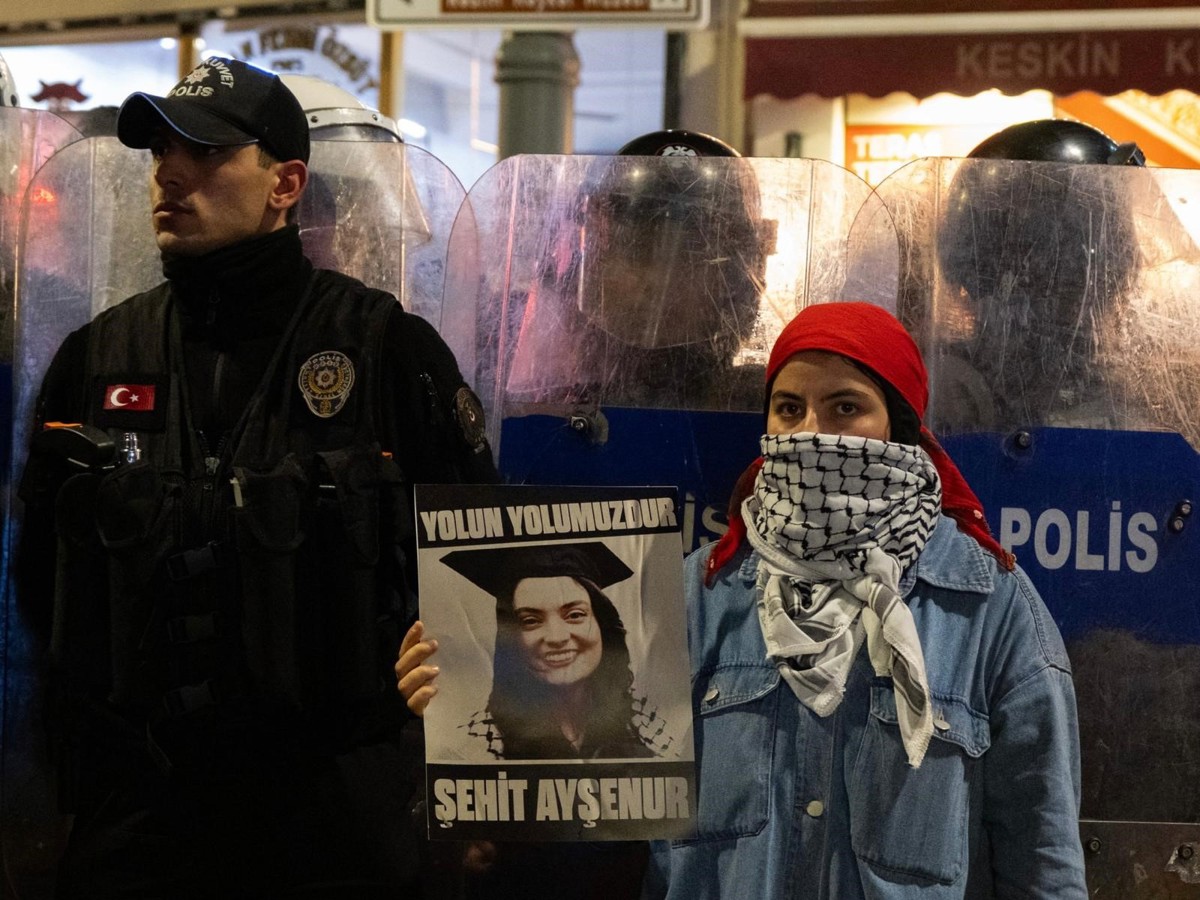
What does 1000 Youth for Palestine do?
Since its founding in December 2023, 1000 Youth for Palestine has stood by the Palestinian resistance against the genocide perpetrated by Israel, adopting their demands and fighting imperialism from Turkish soil. The group first took to the streets on January 7, 2024, during a protest at Zorlu. With its actions and statements, it positioned itself differently from other pro-Palestinian movements in Turkey.
The group exposed the government's trade relations with Israel. Rather than relying on rhetoric, it built itself through action, advocating for a policy of demands. By bringing together people from diverse worldviews, it created a new line of resistance for those in Turkey who wish to support and align themselves with the Palestinian struggle.
The Ministry of Trade denied shipments to Israel, falsely claiming they were going to Palestine. Months later, they announced a decision to cut trade with Israel. On April 6, 1000 Youth for Palestine staged their most impactful demonstration in Taksim, targeting the Ministry of Trade. The protest called out trade between Turkey and Israel, and the group faced harsh police intervention, including an incident where a female police officer slapped a female protester, which became a hot topic in the media.
In that protest, 43 people, including a child, were violently arrested. As videos and photos from the protest circulated on social media, public outrage grew. The hashtag #İsrailleTicareteDurDe ("Stop Trade with Israel") quickly became a trending topic on Twitter across the country.
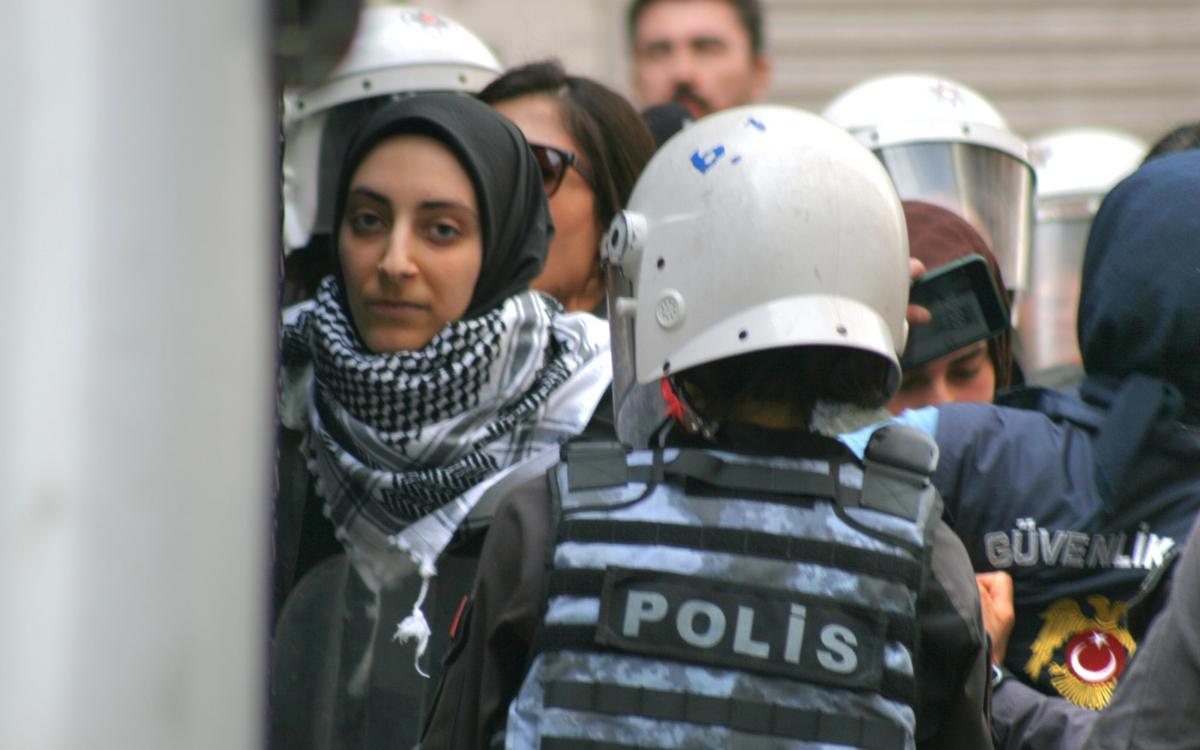
After the protest, Interior Minister Ali Yerlikaya announced that two police officers had been suspended in relation to the incident. The justification for the arrests, however, was that the protesters had allegedly "insulted state officials."
On Apr 9, trade restrictions were imposed on Israel, and on April 26, President Erdoğan announced that trade with Israel had been cut off: "We have severed and are continuing to sever all relations, especially trade, with Israel."
For AKP supporters who had believed that the ships were actually destined for Palestine, the exposure of this trade was a major disappointment and caused significant division. It was revealed not only that ships were going to Israel but also that Azerbaijani oil was being transported to Israel via Turkey.
Even on the anniversary of the genocide, Azerbaijani oil continues to flow to Israel through the Baku-Tbilisi-Ceyhan pipeline. Ships carrying steel continue to depart from Turkey's ports to Israel's. 1000 Youth for Palestine has been highlighting and opposing this trade from the beginning, exposing the transport of steel and oil to Israel, and they continue to stand firm in their stance.
‘Because we’re tired of silent marches’
The movement’s target is not only the government but also capitalists, genocidal forces, business owners, and their collaborators. Companies like SOCAR, Zorlu, İÇDAŞ, and BOTAŞ have been and continue to be targeted. Protests at Zorlu and in front of SOCAR's headquarters have become signature actions for the movement. Far from damaging the movement, the police interventions and subsequent arrests during these protests have only served to expose the names of the collaborators and the concealed trade deals.
1000 Youth for Palestine continues its protests with slogans like "No ports for genocide," and "The oil flowing from the Baku-Ceyhan line is not oil but blood." They persist in their demands to cut off the trade of steel going to Israel from Turkey, and the Azerbaijani oil from the Baku-Ceyhan pipeline that fuels Israeli jets. They frame this trade as a betrayal of Palestine.
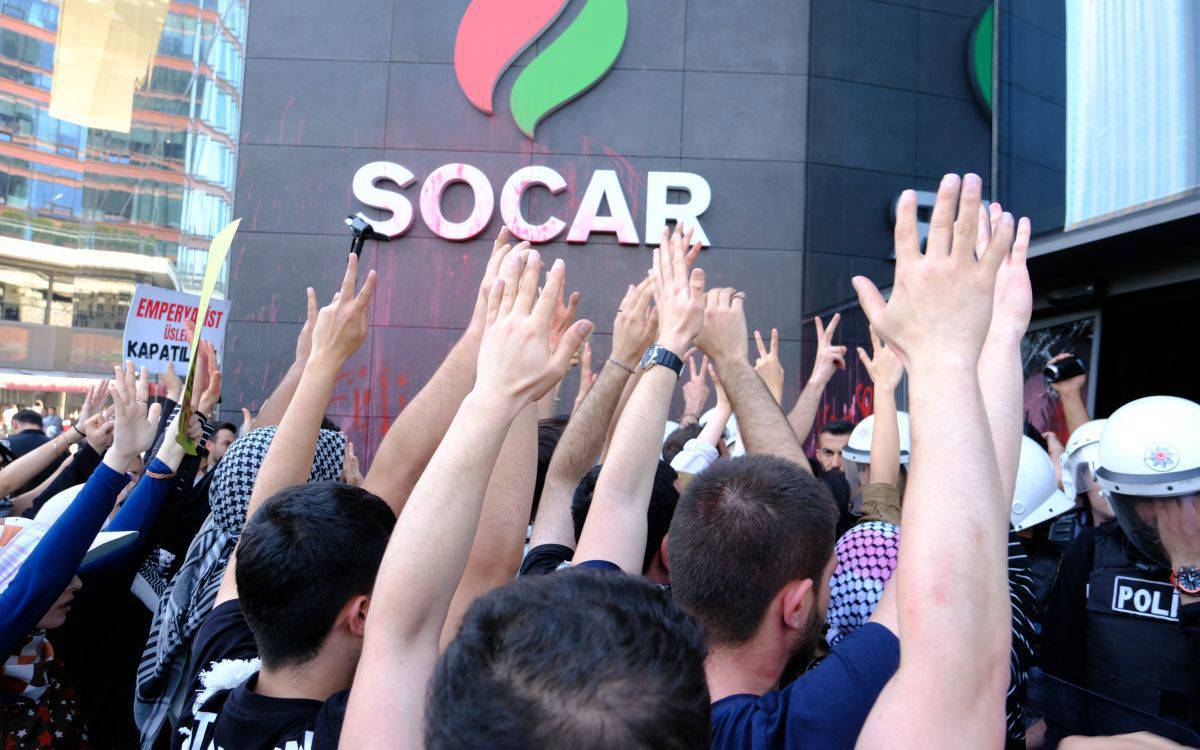
1000 Youth for Palestine showed a boldness and a different kind of activism than what I had seen since my childhood during the Mavi Marmara days. This was unlike the usual silent marches with people wearing keffiyehs around their necks or the somber conferences with the same individuals and mournful background music.
The group didn’t just expose Turkey’s trade with Israel; they also targeted the capitalists. They worked to publicize their message and spread the demand to cut off trade with Israel. For young people who grew up in families accustomed to silent marches—those who had a stance on the issue but couldn’t quite find their place—this movement offered a new opportunity for resistance.
I think Ünsal Uslu’s words during the protest are fitting here: "Because we’re tired of silent marches."
Since becoming involved with the movement, one of the things that has surprised me the most is the diversity within the group. Despite sharing a common focus on anti-imperialism, anti-Zionism, and anti-capitalism, the members come from very different worldviews. This diversity has been criticized by some, but I find it incredibly valuable.
It might be an exaggeration, but in my mind, I often liken it to the Palestinian resistance with the phrase, "Many fronts, one struggle." (İŞ/VK)




